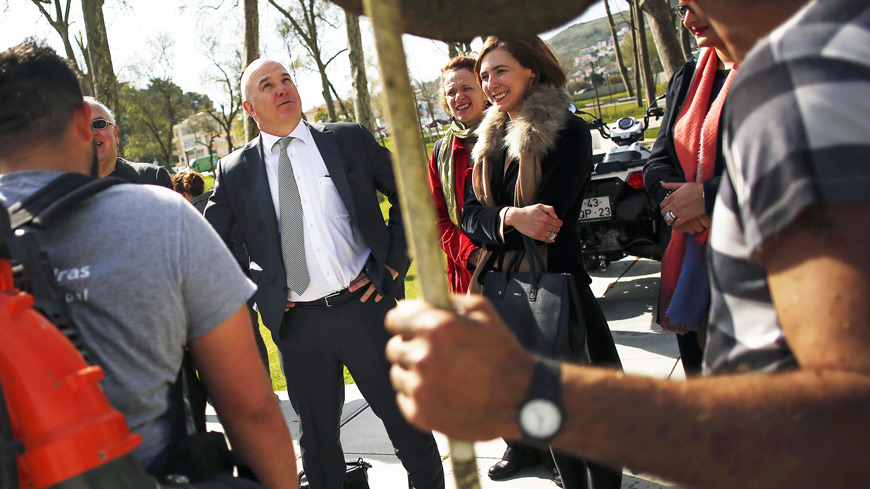Concrete measures to address the discrimination Roma face in Portugal and ways to foster the participation of Roma in society were at the centre of a two day visit the Council of Europe Commissioner for Human Rights Nils Muižnieks made to Lisbon and Torres Vedras on 6-7 March.
“It is heartening to see the positive changes brought about by the participation of Roma mediators in local government and the involvement of community groups in decision making to tackle issues such as discrimination, educational attainment and job opportunities. This pragmatic and participatory approach shows that cooperation between Roma and the majority population at the local level, fostered by strong political leadership, is a worthwhile investment that needs to be supported and sustained” said the Commissioner, after visiting Torres Vedras. This municipality is one of seven in Portugal implementing a mediator programme aimed at developing better relations between Roma, local authorities and the majority population and at supporting the empowerment of Roma. “The programme is a key tool to help overcome entrenched prejudices and stereotypes and foster better community relations. It should be continued and extended to other municipalities.”
Moreover, the Commissioner welcomes the efforts made to tackle the issues Roma face in the area of education, especially the adoption of a scholarship programme for young Roma men and women to access higher education. “Awarding scholarships to Roma, especially to girls, will create positive Roma role models and give birth to a new generation of Roma leaders, including women, able to take part in decision-making at the local and national levels”. The Commissioner encourages the authorities to implement further measures to reduce the high drop-out rate from school among Roma and to combat illiteracy, especially among women and girls.
The Commissioner expresses serious concern about the very difficult housing situation many Roma face in Portugal, as evidenced by recent research. “A long term policy on housing is needed for all vulnerable groups, including Roma. New programmes involving the construction of social housing, such as the one launched by the municipality of Lisbon, are most welcome and I invite the authorities to make full use of existing funding sources, including at European level, to develop affordable and adequate housing and make sure that Roma fully benefit from such programmes.” The Commissioner also stresses the crucial importance of pursuing efforts to eradicate substandard and often segregated settlements in which Roma live in many parts of the country. “Separation, in housing or in education, perpetuates prejudices. It is bad for both the Roma and the majority community as it always brings about discrimination and conflict.”
The Commissioner welcomes the efforts made to collect data on the situation of Roma. “Better data will inform the upcoming review of the National Strategy for the Inclusion of Roma Communities and allow better targeted and more effective actions.” The improved information base, combined with the government’s plans to strengthen the legislative and institutional framework for combatting discrimination, represent a good foundation for further steps towards Roma equality.
However, a series of recent incidents, such as threats, arson and attacks against property, including a Church, of the Roma community in the locality of Santo Aleixo near Moura, give cause for deep concern. “Hate crime and hate speech against the Roma community cannot be tolerated and must be adequately investigated and punished.” The Commissioner welcomes the filing of a criminal complaint by the authorities and noted that “a prompt and adequate investigation should also contribute to improving relations and restoring trust between Roma and the police. The apprehension and punishment of the perpetrators will be an important sign of the determination of the authorities to promote Roma equality and combat intolerance.”



